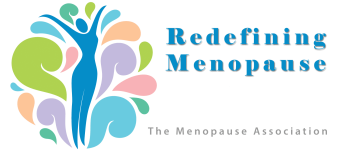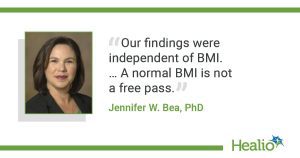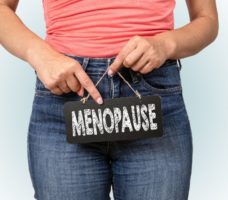Lorena Beatriz, now 30, born in Brazil, but lives on the Gold Coast, Queensland, stopped taking the birth control pill at the age of 23 and was alarmed to find that her menstrual cycle had completely stopped.
After two years of suffering from the symptoms, she was finally diagnosed with spontaneous premature ovarian insufficiency , a condition that early menopause is mentioned as a result of which she runs the risk of developing heart disease and probably does not carry her own baby.
Graphic designer Lorena Beatriz (photo) suffered for years from symptoms such as unexplained mood swings, hot flashes and a drastically reduced libido before the diagnosis of spontaneous premature ovarian insufficiency was made at the age of 25.
My first reaction was to cry, because I had wanted children for as long as I can remember. It was such a huge shock and I felt so alone, I didn’t even know it was possible to have the menopause at such a young age, & she told FEMAIL.
Despite losing two jobs because of her debilitating symptoms and taking hormone replacement medication daily, Beatriz said that the most difficult part of going through the early menopause is how few people understand her condition.
In 2012, Beatriz underwent a routine ultrasound scan in her native Brazil, which identified unusually small ovaries.
At the request of her doctor, she stopped using the contraceptive pill and was alarmed to discover that her period had stopped completely.
Mrs. Beatriz was fit, active and healthy and struggled to understand why 25 years before her time she had to face the harsh reality of going through the transition.
As soon as I stopped taking my pill, my period stopped immediately. Looking back, I had all the symptoms of the menopause – hot flashes, vaginal dryness, really drastic mood swings, and very little sex drive, & she said.
Yet it took two years and countless tests before a fertility specialist finally diagnosed her with spontaneous premature ovarian insufficiency, a condition that affects only one percent of women under 40.
They told me that I was born with a smaller amount of eggs than normal – it was so overwhelming, she said.
The reality of spontaneous early ovarian insufficiency
Premature ovarian insufficiency (POI) implies a loss of function of the ovaries in women under 40 years of age.
Spontaneous POI affects only one percent of women younger than 40 years.
The condition is difficult to diagnose and in most cases – around 90 percent – the cause is never determined.
The earliest sign of spontaneous POI is the complete loss of menstruation.
Side effects of spontaneous POI:
Spontaneous POI causes menopausal symptoms, including hot flashes, irregular mood swings, sleeping problems, vaginal dryness and drastically reduced libido.
In many cases, the symptoms are more severe than those experienced by women in natural menopause, which usually starts around the age of 50.
Spontaneous POI also causes significant emotional distress, including depression, anxiety and general confusion.
It increases the risk of serious diseases, including bone diseases such as osteoporosis and heart disease.
As with natural menopause, the majority of women with spontaneous POI experience a loss of fertility.
There is a small chance – between one and five percent during a lifetime – of becoming pregnant without help, but the majority of women with a spontaneous POI who want to become parents choose to adopt or help children.
At I ate well, I practiced, I lived a healthy life, so it was really confusing for me. Instead of having the menopause in my early 50s, I got it 25 years early.
In the beginning I was most concerned about the fertility aspect, but when I heard about the other side effects of the menopause, I realized that there were so many problems that are usually associated with the elderly that I could develop at a young age .
Nobody thinks of these things in 25 – cancer, osteoporosis, skin aging, hair turning gray – and the hardest part felt like I was going through it alone.
People judge you – they don’t feel empathy because they don’t understand what you’re going through. & # 39;
Mrs. Beatriz lost two jobs as she struggled to control her debilitating symptoms and to adapt to the side effects of hormone replacement therapy medication, which she now uses every day.
Today Beatriz manages her condition with daily doses of hormone replacement medication and she finally feels at ease talking about her experience openly
Until the middle of this year I had so many problems adapting to hormone therapy – sometimes the amounts were too high, and I was anxious and very tense, and sometimes they were too low, so I became depressed, she said.
Since May I have had a balanced dose that works for me, but it took almost five years to reach this stable level.
Talking openly about my condition means a lot to me because I feel that I have finally accepted my condition and who I am. & # 39;
In the future Mrs. Beatriz hopes to adopt a child.
Menopausal hormone therapy is the most effective treatment currently available for menopausal-related symptoms, reducing the increased risk of developing secondary conditions such as heart disease and osteoporosis.
Associate professor Amanda Vincent of Monash University in Melbourne said that going through the early menopause is a daunting and confusing time for young women like Mrs. Beatriz.
In the future, Mrs. Beatriz (pictured on her 30th birthday) hopes to adopt a child
Early menopause can lead to infertility, psychological stress and increased risk of bone and heart disease. It can also be a very lonely one, & she told the Sydney Morning Herald.
Earlier this week, Monash University and RMIT researchers launched a new website, Health Talk Australia, which provides support and information for Australian women diagnosed with early menopause.
Project coordinator Kate Johnston-Ataata said the website was created in response to the lack of available resources for women in Australia.
The early menopause is a condition that is so recognized – the means are scattered and few and far between.
Infertility is clearly a major problem, but I think the biggest thing for women with early menopause is actually isolation and feels completely out of sync with their peers.
It is equally difficult for them to relate to women their age and older women going through the natural menopause. & # 39;
This content was originally published here.







